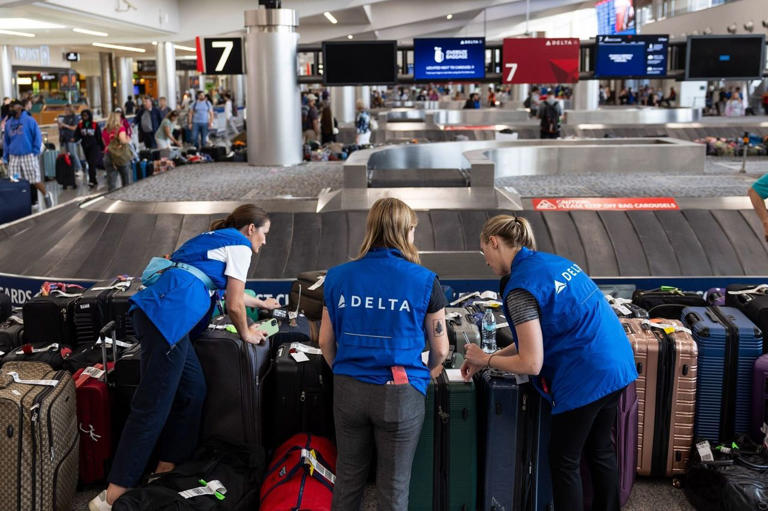CrowdStrike has recently addressed the ongoing controversy with Delta Air Lines regarding a significant technology outage caused by a bug in the cybersecurity firm’s quality-control tool. In a formal response to Delta’s legal team, CrowdStrike has asserted that it is not responsible for the full extent of the financial losses claimed by the airline. The cybersecurity company argues that Delta’s threats of a lawsuit have contributed to a misleading portrayal of the situation, suggesting that CrowdStrike is being unjustly held accountable for the airline’s tech decisions and its handling of the outage.
Michael Carlinsky, an attorney at Quinn Emanuel Urquhart & Sullivan representing CrowdStrike, criticized Delta for its public stance, which he believes inaccurately reflects the company’s actions. In his letter, Carlinsky stated, “Should Delta pursue this path, Delta will have to explain to the public, its shareholders, and ultimately a jury why CrowdStrike took responsibility for its actions—swiftly, transparently, and constructively—while Delta did not.” This statement highlights CrowdStrike’s position that it has been more transparent and proactive in addressing the incident compared to Delta.
The dispute intensified after Delta’s CEO, Ed Bastian, revealed that the outage, which occurred following a problematic update from CrowdStrike, had cost the airline approximately $500 million. This estimate includes losses from canceled flights, lost revenue, and compensation to affected passengers. In response, Delta has indicated its intention to pursue legal action against CrowdStrike and Microsoft. To support its claims, Delta has engaged Boies Schiller Flexner, a prominent litigation firm, and has issued a memo to its employees outlining the situation and the steps being taken.
CrowdStrike, on the other hand, has asserted that its contractual liability is capped at a much lower amount, described as “single-digit millions.” The company has explained that a bug in a quality-control tool used to check system updates for errors inadvertently allowed a critical flaw to be deployed to millions of Windows machines. Despite acknowledging the disruption, CrowdStrike emphasized that it acted quickly by offering on-site support to Delta, which was reportedly declined. Additionally, CrowdStrike’s CEO attempted to reach out to Bastian directly but did not receive a response.
The cybersecurity firm has also demanded that Delta preserve all documents and records related to its response to the outage, including information on previous IT issues and the airline’s technology systems and backup plans. CrowdStrike pointed out that while other airlines managed to return to normal operations within a few days, Delta continued to experience significant difficulties well into the following week. This prolonged disruption led to over 5,000 flight cancellations, far exceeding the impact on other airlines. The U.S. Department of Transportation is investigating Delta’s response to the incident and its handling of customer service during the disruption.
Delta’s heavy reliance on technology providers like Microsoft and CrowdStrike has been a focal point of the controversy. Bastian has noted that the airline’s extensive exposure to these providers contributed to the severity of the impact. Delta’s IT, operations, and customer care teams are reportedly conducting an in-depth analysis of the outage to learn from the incident and to improve future responses.
The CrowdStrike outage affected a broad range of entities beyond Delta, including banks, restaurants, colleges, and government agencies. The widespread nature of the problem underscores the far-reaching implications of such technology failures and highlights the interconnectedness of modern digital systems.
As the legal battle unfolds, both CrowdStrike and Delta will need to navigate the complexities of the situation, addressing both the technical and reputational aspects of the dispute. The outcome of this conflict may set precedents for how technology providers and clients handle similar issues in the future, particularly regarding liability, transparency, and the management of large-scale disruptions.
In summary, the ongoing dispute between CrowdStrike and Delta Air Lines illustrates the significant challenges faced by companies in managing cybersecurity risks and handling the fallout from technology failures. The resolution of this conflict will have important implications for both parties and could influence industry practices and legal standards related to technology and service disruptions.
